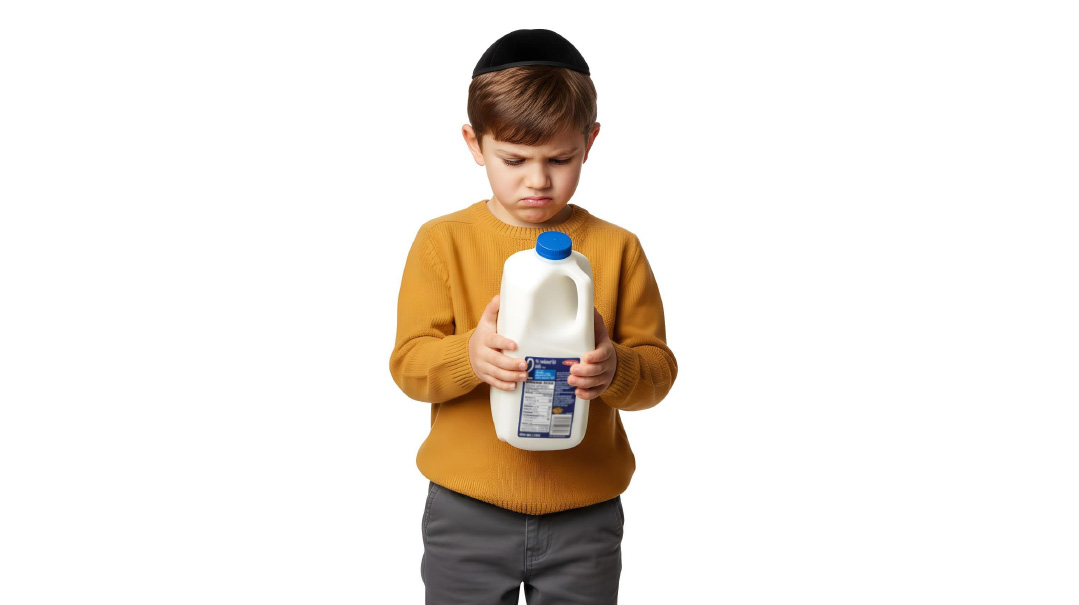Cocoon of Comfort


SPECIAL EFFORT I can’t hurt her feelings. She made a special effort to come; there’s no way I’m going to tell her to leave. I feel that way with everybody. They take time out of their busy schedules to be menachem avel. I refuse to intimate in any way that I am tired or that I have just repeated the same story 25 times
N oiselessly they enter and remove their coats. Tucking them over their arms they sit on folding chairs placed around the room around the mourners. From my low perch on my stool their faces loom above me.
“How old was he?” a neighbor ventures.
“Ninety,” I answer.
Faces relax.
Oh, he was old. It’s not that sad, their faces are saying.
Others, like my old school friend, Sasha, takes my hand in hers, “I’m sorry,” she says simply.
A family friend walks in and I want to beg her, Please stop looking like you’ve just gone to your own father’s funeral. Her expression of overwhelming sorrow as she sits down, never taking her eyes off mine unnerves me. Uh-oh, I’m not feeling overwhelming despair, I think, why is she looking at me like that? If I don’t mirror her feelings, she’ll think I’m a terribly unfeeling daughter. I mean, maybe the loss will hit harder after shivah, maybe it won’t. But I’m okay now, stop looking at me like that! I shout in my head.
Some invite conversation. They want to hear all about him, all about his long, amazing life. They know he was in both the American and Israeli army when he was younger. They want to hear the stories.
I look over near the lamp table. My sister Frieda is holding court, entertaining neighbors and business associates. “After my father came back from fighting in the Philippines in World War II,” I hear her say, “he wanted to fight for Israeli independence. So he joined the Irgun, an underground group committed to rousting the last of the British from the land. He called his mother as the boat was leaving for Israel to say goodbye, but she refused to come to the phone. She was so upset he was once again leaving for war.”
When my sisters and I begin with the stories, we’re performers on the stage of shivah stools. The audience sits with faces alternating between awe and, when they think of it, sorrow. I usually begin with my American-born father’s burning desire to fight for the Jews being exterminated in Europe. Sometimes, I start with his early life growing up in prewar Williamsburg and the romantic story of his parents’ marriage.
“My grandmother’s older sister in Dej, Transylvania, wasn’t getting married and that meant that according to their custom, my grandmother couldn’t get married, either,” I explain to the comforters. “So she decided the only way was to come to America, which she did by herself. Well, not really by herself,” I continue, “my grandfather, who was her cousin, followed her with the plan to eventually marry her, and within a few months of arriving on the lower East Side, they got married.”
At this point my throat is running dry, and I stretch out my arm toward my sister as if to say, “Take it away, your turn.” (I think I actually say it). Sima picks up the thread and talks about my grandfather starting off with a new job each week, and getting fired after not showing up on Saturday. Eventually, he got a job with a shomer Shabbos matzah factory, Horowitz Margareten, and after that, opened a butter and egg business, and so became his own boss.
I realize this is a piece of history. Not of a tzaddik’s holy life, but of a simple Jew in the early 20th century, fighting to keep his family religious. “People don’t realize today the courage it took to keep Shabbos and risk their livelihood,” some of the older visitors say. “They look at the knitted kippah and don’t give the respect these people deserve. Our children wouldn’t be here today if not for our grandparents’ mesirus nefesh for Shabbos.”
It’s time for lunch. We move to the kitchen. Nieces, nephews, and my children take shifts. They’re here to serve us. How radical. How comforting. “What’s it gonna be, Ma, broiled salmon or tuna wrap?” my daughter Mindy asks. I opt for salmon. I sit on a low chair as my children hover over me solicitously, making sure I have enough to eat.
I’m about to take a bite of the salmon when Daniella my neighbor sits down in front of me to talk. “Um, hi, Daniella,” I say with a mouth full of food that is terrifyingly close to spilling out. Daniella takes no notice. She launches into a story of when her mother died — “it was just me sitting shivah, you’re so lucky you have a big family, you know. When I was sitting shivah, nobody came to visit, or hardly anybody, and that’s when I decided that this would be my mitzvah, being menachem avel whenever I hear of someone sitting shivah.
“Some months are harder than others,” she continues. “Last month I had four shivahs in one week. That was rough.” I am trying to nod politely while feeling in the back of my throat for a bone that might have gotten caught. I quickly drink some orange juice, choking a little as the bone loosens and slides down. Daniella does not notice. “This week is a quiet week so far, just your shivah,” she is saying. What I’d like to say is, Thank you so much for coming, Daniella, I really appreciate it. However, I am in the middle of eating now and I really don’t feel comfortable when people come into the kitchen and watch me eat. I say nothing. I smile.
I can’t hurt her feelings. She made a special effort to come; there’s no way I’m going to tell her to leave. I feel that way with everybody. They take time out of their busy schedules to be menachem avel. I refuse to intimate in any way that I am tired or that I have just repeated the same story 25 times or that I am hungry. Maybe I’m too involved with my visitors’ feelings. After all, they’re here to comfort me and my family, not I to comfort them. Maybe I should be concentrating more on my loss. Maybe this is an unhealthy way of distracting myself.
Maybe not. I just know that after each and every person comes to offer their condolences, whether I’m in the mood to talk and they vanish before I’m finished or whether I can’t keep my eyes open another minute and they’re still there droning on, there’s a warmth and feeling of comfort inside of me for the time and effort and caring it took for them to come.
(Originally featured in Family First, Issue 535)
Oops! We could not locate your form.






